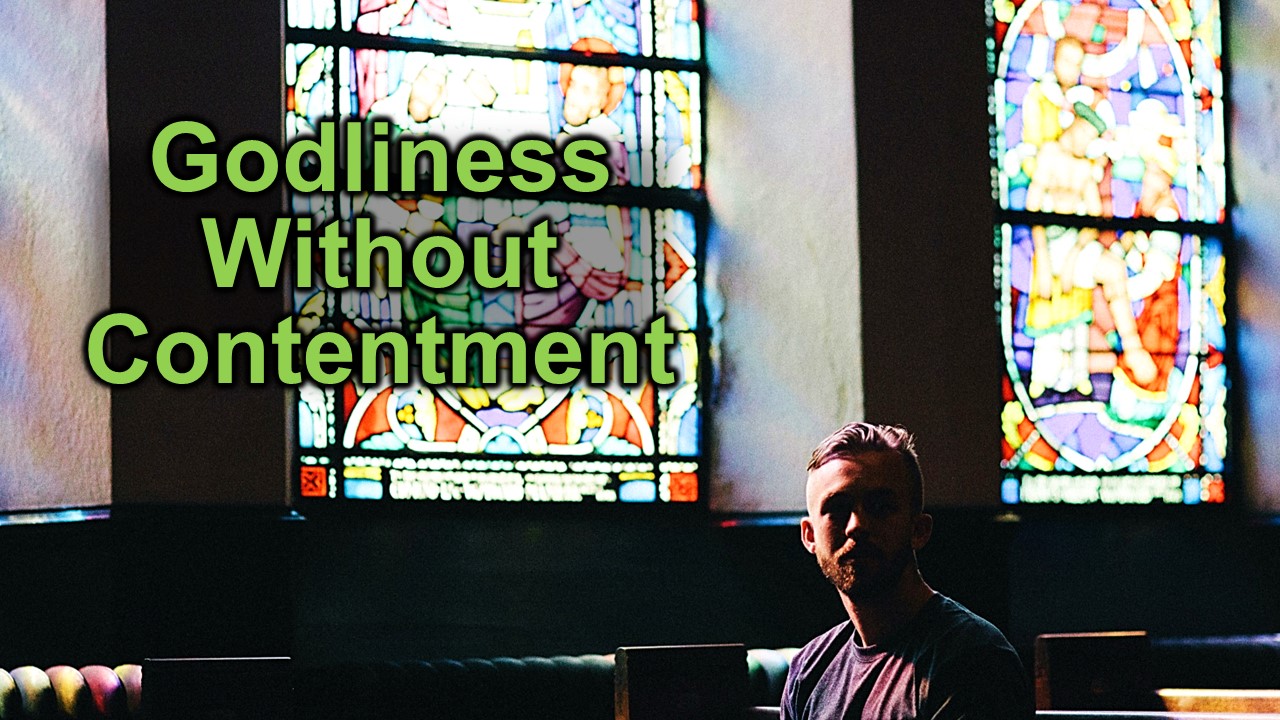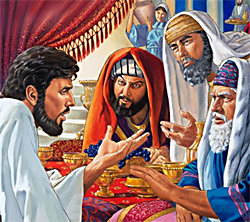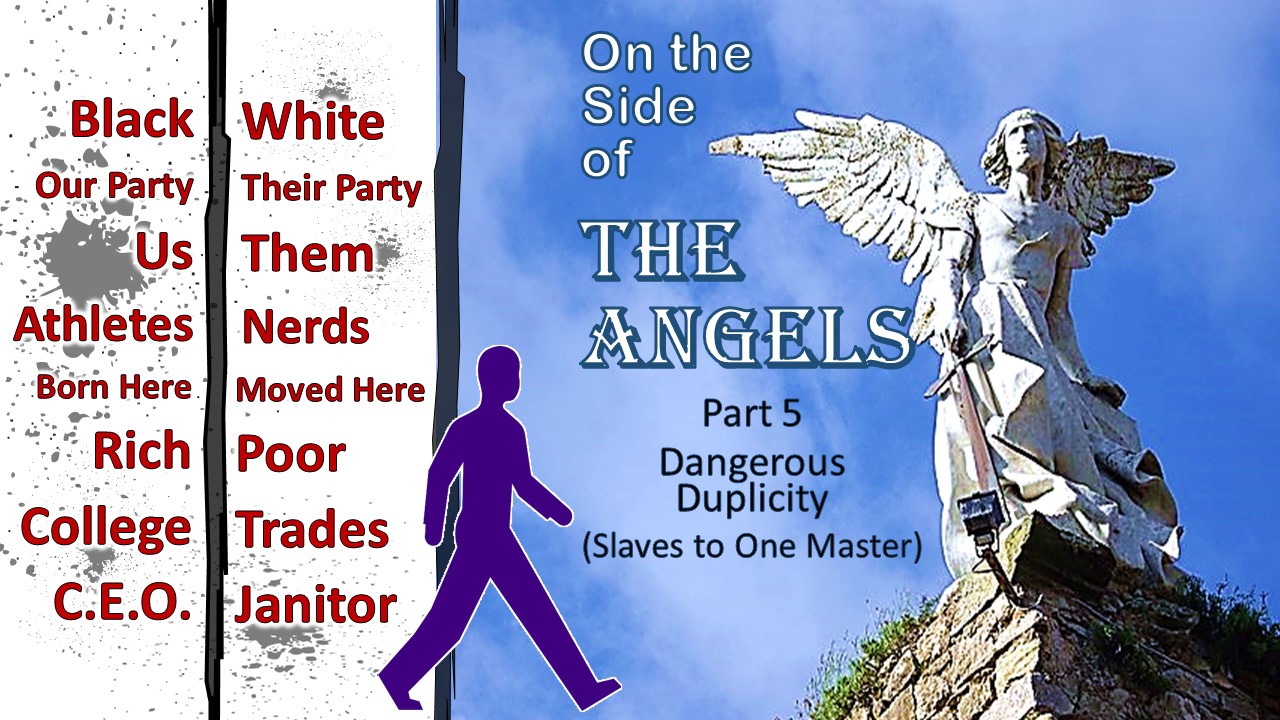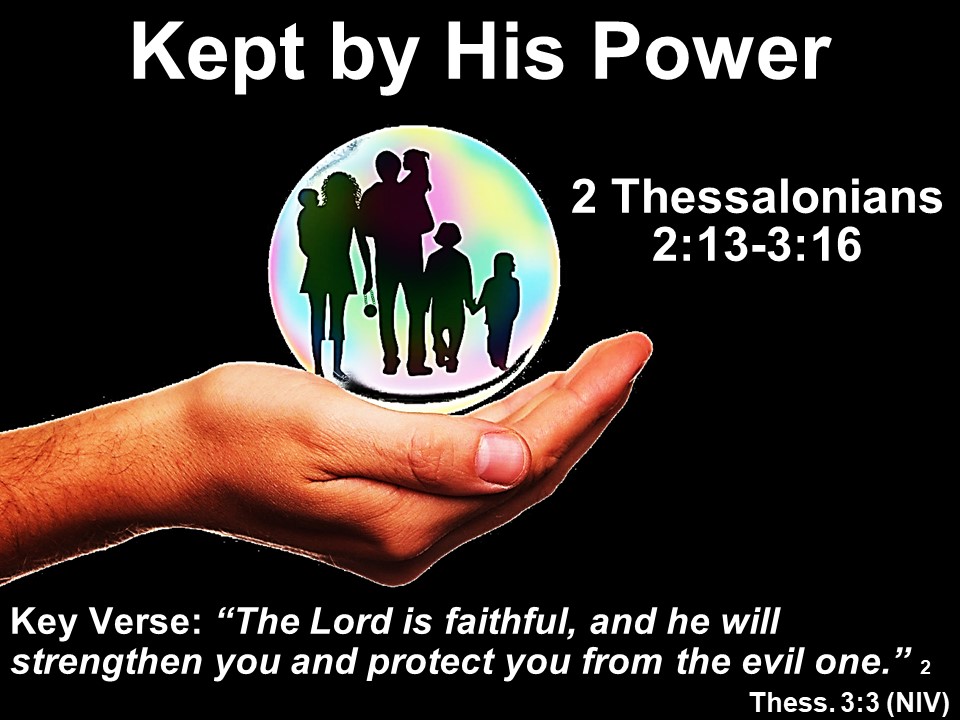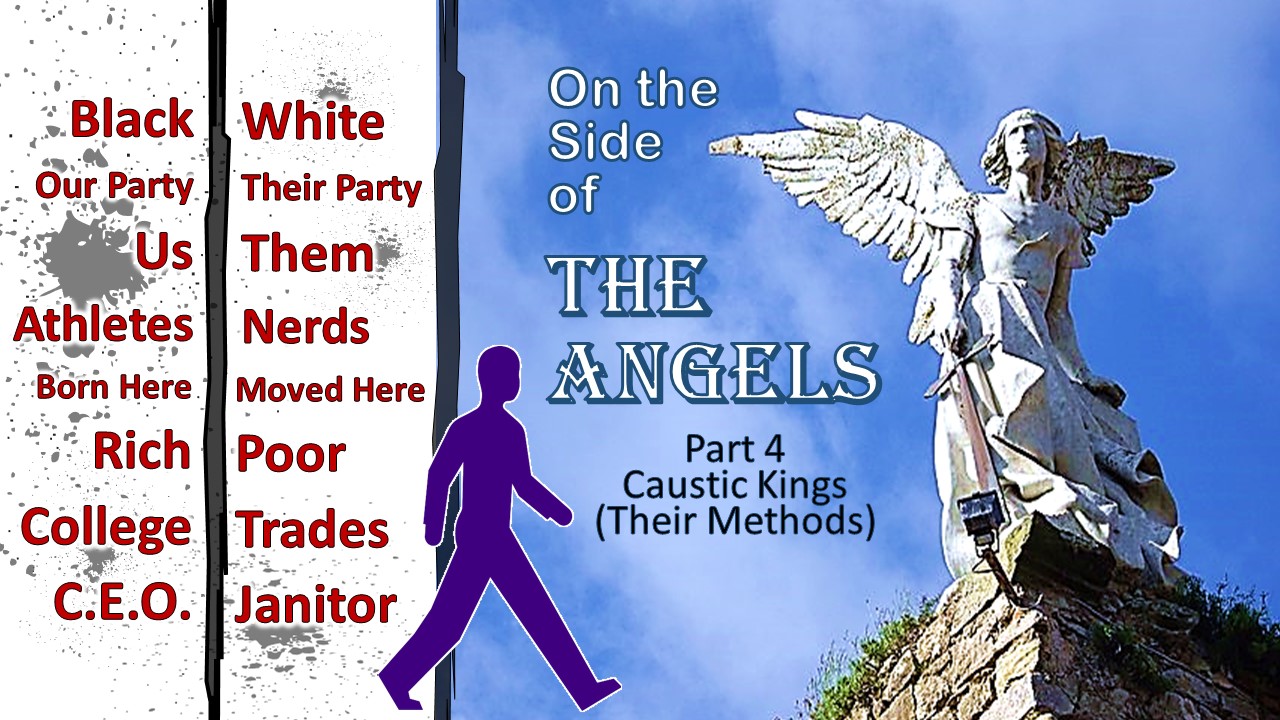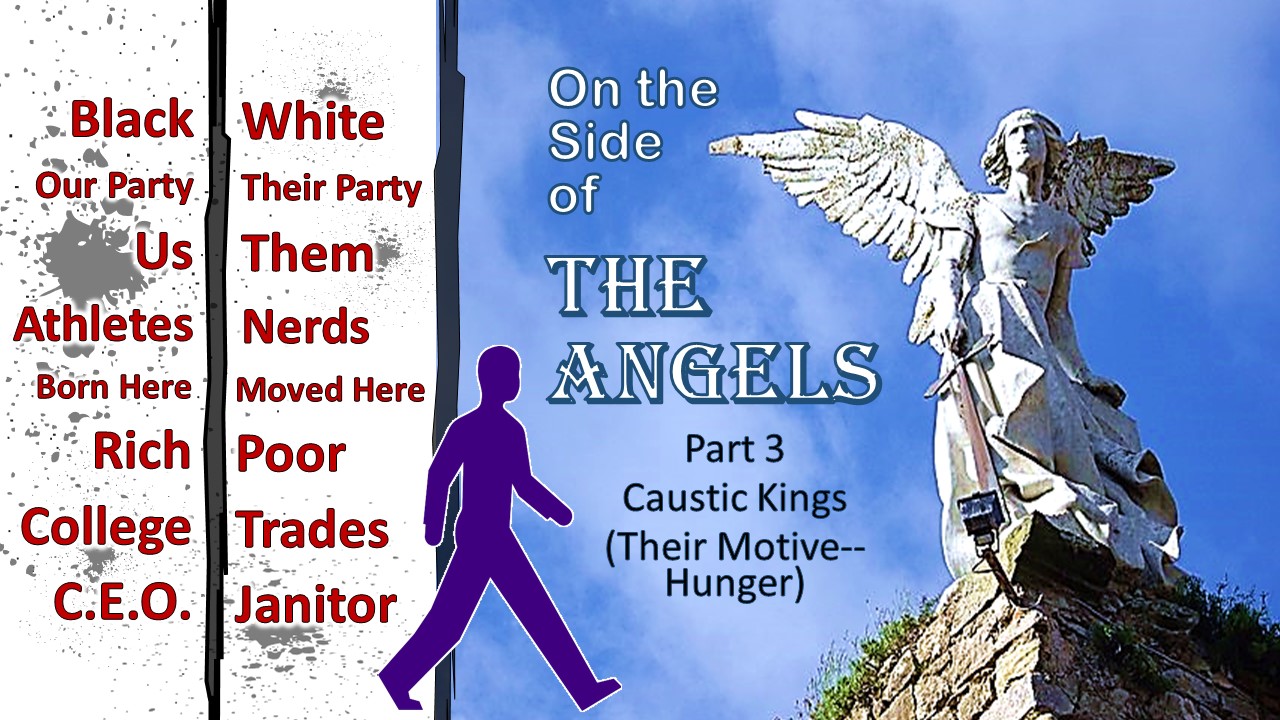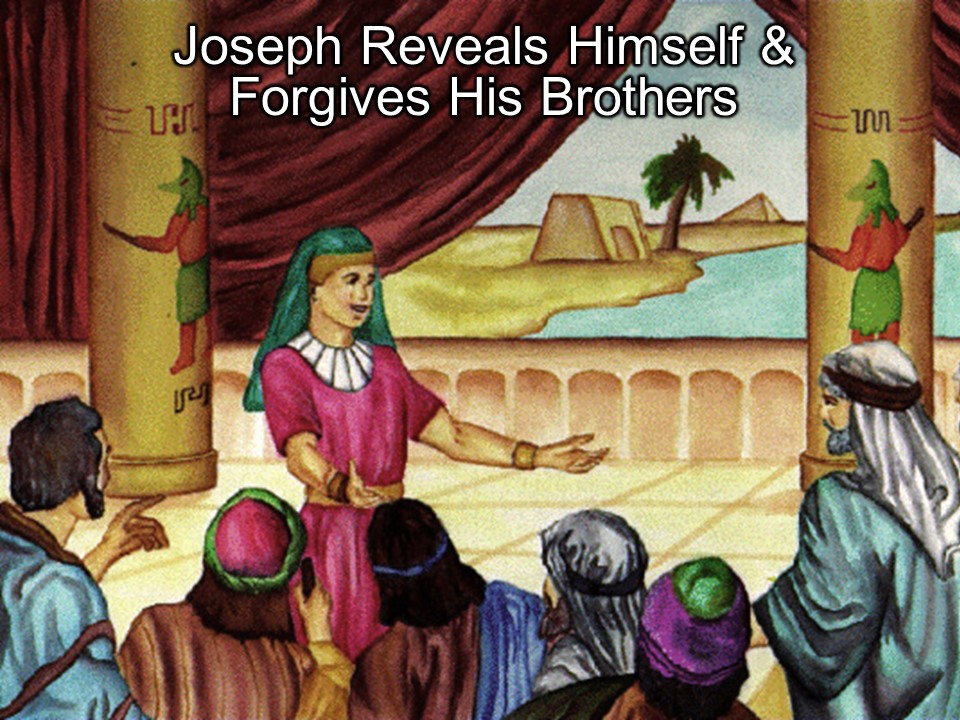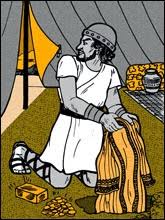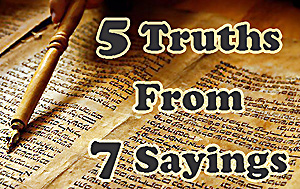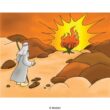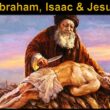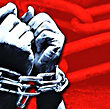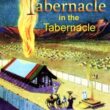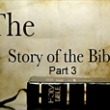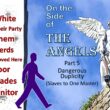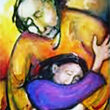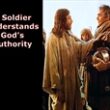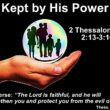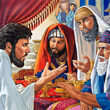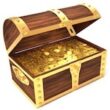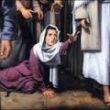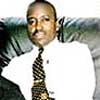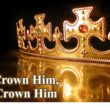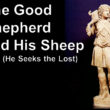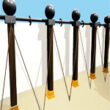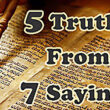Outreach Quote of the Day:
“There is not a square inch in the whole domain of our human existence over which Christ, who is Sovereign over all, does not cry, Mine!”
―
Download Free PowerPoint Here:
Preview PowerPoint Here:
Video Lesson #15 – God’s Timetable, pt. 9
A Tale of Two Kings pt. 2 – Herod’s Rise – Seeking Power
Watch Our Live Teaching Here
As we continue to look at the life and reign of Herod the Great, it feels like we are reading today’s headline news.
It confirms Sir Lord Acton’s quotation about whether religious leaders are as accountable for their bad deeds as political leaders are.
He wrote, “Power tends to corrupt and absolute power corrupts absolutely. Great men are almost always bad men, even when they exercise influence and not authority…”
We must continually remember, first and foremost, ALL the GLORY BELONGS to the LORD!!!
We recommend the following music to go with your lesson time together:.
1) GREAT IS THE LORD
2) How Great Is Our God
3) Humble Me
4) You Alone
May God Bless Your Session
__________________________________________
A Tale of Two Kings Pt. 2 Transcript
Herod’s Rise (Seeking Power)
Remember, God is working from a timetable!
He has everything scheduled for the rest of time.
In Review
In our last lesson we saw the influence of Greek thought and ways upon the known world, including the Jews.
We began looking at Herod the Great, an evil king of Judea.
We learned a little Jewish history and some background about Herod’s birth family.
It was nearing the end of Israel’s subservience to the Greek empire.
At this time, the occupying Greek King was, Syrian born, Antiochus IV (an·tai·uh·kuhs).
Even though they hated being conquered and then occupied by the Greeks, Jews at this time, were attracted to Greek thought and culture.
The Hellenistic (or Greek) world had become very prosperous.
They cared about one thing: “What makes for a good life?”
People were no longer concerned about the origin of life, ethics, morals, society, or proper government.
The topic of the day was happiness and personal satisfaction.
They were rich and sophisticated, lovers of pampering bath houses, elaborate dress, educated in literature and many languages, sports minded with grand arenas, arts minded, and rich in mythology.
At first the Greek conquerors were tolerant of Jewish religion and traditions—as if the Greek and Jewish ways and values could somehow exist side by side.
Eventually, the tides turned. Antiochus IV reversed the tolerance policy and issued a decree banning Jewish religion.
He then defiled the Temple and killed thousands of Jews for being Jews.
And now…
A Tale of Two Kings Pt. 2
Herod’s Rise (Seeking Power)
Today, we will learn how a young man named Herod became “Herod the Great.”
Growing up in this polarized environment of Jewish thought vs Greek values, Herod became a master of playing both sides.
He was thoroughly Hellenistic at heart, while at the same time, courted the favor of both the Jewish and (soon to be) Roman leaders—a real savvy politician!
Israel had been subject to a series of conquering empires—
The Egyptians, Assyrians, Babylonians, Medes & Persians, and the Greeks (which we are looking at now), plus the Romans (which we will look at soon).
But first, we need to look at the origin of the Jewish holiday… Hanukah.
It all began when an old priest named Mattathias refused to perform a pagan sacrifice ordered by Antiochus IV.
He killed the Greek officer who was trying to force him to comply, as well as a fellow Jew who did comply and was performing the ritual.
This began a Jewish revolt against the ruling Greeks.
Mattathias (the old priest) escaped to the hills with his five sons & formed a resistance party—a clan of warriors known as the Hasmoneans (also called the Maccabees).
Then, Antiochus’ soldiers killed nearly a thousand of them during the Sabbath.
After that, they agreed they would fight Antiochus’ army, even on the Sabbath.
The Hasmonean army defeated Antiochus and his army and reclaimed the Temple.
While rededicating the Temple to God, they lit the Temple lamp.
According to Jewish Tradition, the lamp contained a days’ oil.
Yet, as the tale is told, it continued to burn for eight days.
This is where the Jews get their eight-day celebration called, Hanukkah.
Although they revolted against their Greek king, and had come to hate Greek rule, they had also come to love the Greek ways, thinking and culture.
Because of this, the Hasmonean dynasty did not look much different than the Greek dynasty they replaced.
They loved their former Hellenistic lifestyle.
As a result, they soon began to live a hybrid lifestyle, part Greek, and part Jewish.
Just like the oppressive foreign powers before them, the Jewish Hasmonean dynasty was filled with political backstabbing and maneuvering.
Some of the Hasmonean leaders eventually decided that it wasn’t enough to be JUST a king or JUST a High Priest.
This is the ultimate thirst for power!
At first, a man (or woman) might want to be a civil or secular leader.
This may be expressed through politics, or business or just rising to the top of any human endeavor or organization.
They want to be the leader, the boss or even, as they say today, The G.O.A.T.
The G.O.A.T.
Greatest of All Time!
Knowing the prideful heart of man, God created laws that forbade any one person from becoming both King and High Priest.
The Jewish king must come from the house of David and Jewish priests must come from the tribe of Levi.
Also, the one and only High Priest must come from the sons of Aaron.
The Hasmonaeans were from the tribe of Levi, and they were fierce revolutionaries, but they were not from the house of David and had no right to ever act as kings of Israel.
They were also not from the sons of Aaron and therefore, had no right to presume to serve as High Priests in the Temple.
Hosea 8:4 (ERV)
“The Israelites chose their kings, but they didn’t come to me for advice. They chose leaders, but they didn’t choose men I knew…”
Here is a bible story about a king who tried to break God’s law regarding priests and kings.
Uzziah was made King of Israel at only 16, and God blessed everything he did.
Uzziah began to resent any area of power or authority that was not his for the taking—including the spiritual power reserved for the sons of Aaron—the rightful High Priests.
2 Chronicles 26:3-22 (ERV)
“Uzziah was 16 years old when he became king… Uzziah did what the Lord wanted him to do… Zechariah taught Uzziah how to respect and obey God. When Uzziah was obeying the Lord, God gave him success.
Uzziah fought a war against the Philistines. He tore down the walls around the towns of Gath, Jabneh, and Ashdod. Uzziah built towns near the town of Ashdod and in other places among the Philistines…
2 Chronicles 26:3-22 (ERV) cont.
…God helped Uzziah fight the Philistines…The Ammonites paid tribute to Uzziah. His name became famous all the way to the border of Egypt. He was famous because he was very powerful… He built towers in the desert. He also dug many wells. He had many cattle in the hill country and in the flat lands…
2 Chronicles 26:3-22 (ERV) cont.
…Uzziah had an army of trained soldiers… There were 2600 leaders over the soldiers. These family leaders were in charge of an army of 307,500 men who fought with great power… Uzziah made machines that were invented by clever men. These machines were put on the towers and corner walls. They shot arrows and large rocks. Uzziah became famous. People knew his name in far away places. He had much help and became a powerful king.
2 Chronicles 26:3-22 (ERV) cont.
…BUT when Uzziah became strong, his pride caused him to be destroyed. He was not faithful to the Lord his God. He went into the Lord’s Temple to burn incense on the altar for burning incense… Azariah the priest and 80 brave priests who served the Lord followed Uzziah into the Temple. They told Uzziah he was wrong. They said to him, “Uzziah, it is not your job to burn incense to the Lord…
2 Chronicles 26:3-22 (ERV) cont.
…It is not right. That is for the priests, Aaron’s descendants, to do. They are the only ones who have been prepared for the holy work of burning incense. You have not been faithful, so you must go out of the Most Holy Place. The Lord God will not honor you for this.” But Uzziah was angry. He had a bowl in his hand for burning incense. While Uzziah was very angry with the priests, leprosy broke out on his forehead.”
2 Chronicles 26:3-22 (ERV) cont.
…This happened in front of the priests in the Lord’s Temple by the altar for burning incense. Azariah the leading priest and all the priests looked at Uzziah. They could see the leprosy on his forehead. The priests quickly forced him out from the Temple. Uzziah himself hurried out because the Lord had punished him. So Uzziah the king was a leper. He could not enter the Lord’s Temple…
This combined position of both the world’s King (the King of all Kings) and man’s High Priest was intended for one man alone—
The Lord, Christ Jesus!!!
Only He can handle this much power and authority.
Only He has both the absolute right and the humility of heart to use these two positions to serve humanity and never abuse them.
Only He is good!
Revelation 19:16 (BBE)
“And on His robe and on His thigh He has a name written, “KING OF KINGS, AND LORD OF LORDS.”
Hebrews 4:14-15 (NIRV)
“We have a great high priest. He has gone up into heaven. He is Jesus the Son of God. So let us hold firmly to what we say we believe. We have a high priest who can feel it when we are weak and hurting. We have a high priest who has been tempted in every way, just as we are. But he did not sin.”
Philippians 2:9–11 (NLT)
“Therefore, God elevated him to the place of highest honor and gave him the name above all other names, that at the name of Jesus every knee should bow, in heaven and on earth and under the earth, and every tongue declare that Jesus Christ is Lord, to the glory of God the Father.”
Scripture warns us that feelings of lust for power and elevated position are potent enough to cause untold destruction and even wars.
They will most certainly destroy the one who feels them.
James 4:1-3 (MSG)
“Where do you think all these appalling wars and quarrels come from? Do you think they just happen? Think again. They come about because you want your own way, and fight for it… You lust for what you don’t have and are willing to kill to get it… You want what isn’t yours and will risk violence to get your hands on it…”
These thoughts and feelings are not new.
They were first thought and felt by a beautiful angel named, Lucifer (the devil).
He too wanted power over everything, even things that belong only to God.
Isaiah 14:12-15 (NKJV)
“How you are fallen from heaven,
O Lucifer, son of the morning!
How you are cut down to the ground,
You who weakened the nations!
For you have said in your heart…
Isaiah 14:12-15 (NKJV) cont.
“’I will ascend into heaven, I will exalt my throne above the stars of God; I will also sit on the mount of the congregation On the farthest sides of the north; I will ascend above the heights of the clouds, I will be like the Most High.’ Yet you shall be brought down to Sheol,To the lowest depths of the Pit.”
2 Thessalonians 1:4 (GWT)
This prophecy tells us that the antichrist will one day have similar thoughts:
“He will oppose every so-called god or object of worship and will put himself above them all. He will even go in and sit down in God’s Temple and claim to be God.”
“James 3:13-16 (GW)
“Who is wise and understanding among you? Let him show it by his good life, by deeds done in the humility that comes from wisdom. But if you harbour bitter envy and selfish ambition in your hearts, do not boast about it or deny the truth…
Psalm 49:10-12 (TLB)
“Rich man! Proud man! Wise man! You must die like all the rest! You have no greater lease on life than foolish, stupid men. You must leave your wealth to others. You name your estates after yourselves as though your lands could be forever yours and you could live on them eternally. But man with all his pomp must die like any animal.”
Romans 2:8 (AMP)
“But for those who are selfishly ambitious and self-seeking and disobedient to the truth but responsive to wickedness, there will be wrath and indignation.”
The Hasmonean dynasty lasted around 103 years…
Then came the Romans!!!
The Hasmonean dynasty came under the thumb of Roman rule.
For a season, the Romans, much as the Greeks before them, allowed the Jews to continue with their religious traditions provided they submitted to Roman rule and paid their taxes.
Herod’s family was rich and influential.
They were still quite like the sophisticated ruling Greeks.
And now they were collaborators with the ruling Romans—wining and dining them.
It wasn’t long before both Herod’s father & grandfather held high offices in Judea. They had the blessing of their Roman conquerors.
It’s worth noting here that there are three generations of the Herodian dynasty in involved in the lives of Jesus and the apostles.
Herod the Great: Who, in order to stop Jesus’ arrival, killed the Bethlehem babies.
His son, Herod Antipas: Who beheaded John the Baptist.
And His Son, Herod Agrippa: Who persecuted the believers in Acts.
But now, back to Herod’s family.
His father’s name was Antipater.
Herod’s mother was Cypros, an Arabian princess from Jordan.
The members of this family were not natural-born Jews. They were Arabs.
They were originally royalty in the land of Edom (Edomites were descendants of Esau).
When the Hasmoneans conquered Edom, they forced all Edomites (including Herod’s birth family) to convert to Judaism.
They also required all the men to be circumcised.
Herod’s Father and Grandfather tended to comply with whomever was in power at the time.
The Herodian family considered themselves Jewish.
Being rich, they managed to become prominent with the Hasmoneans, and after them, with the Romans.
Titus 1:16 (ESV)
“They profess to know God, but they deny him by their works. They are detestable, disobedient, unfit for any good work.”
2 Timothy 3:1-17 (ESV)
“…For people will be lovers of self, lovers of money, proud, arrogant, abusive… treacherous, reckless, swollen with conceit…“…lovers of pleasure rather than lovers of God, having the appearance of godliness, but denying its power. Avoid such people…
Julius Caesar made Antipater (Herod’s father) governor of Judea.
He was to be under the Hasmonean High Priest named Hyrcanus.
Once Antipater was in office, he promoted his first son, Phasael, to be governor over Jerusalem.
Then, Antipater, as the new governor of Judea, also promoted his second son, Herod, as governor over Galilee.
One day, Antipater, was murdered by poison.
(This event may have contributed to Herod the Great’s later paranoia.)
All was not hugs and kisses in the Hasmonean dynasty.
Another Hasmonean man started a revolt against the current group in power, his name was Antigonus.
He and his followers felt it was wrong to let the Herod family (being non-Jews by birth) have any power.
Many Jews thought Antigonus was the Messiah sent to deliver them from the Romans.
They were tired of the Herodian collaboration with the Romans. They hated both the current High Priest and the Herodian Family.
Antigonus joined forces with the Iranians to take Jerusalem and destroy the Herodian family.
Herod attempted to rescue his family and the High Priest, Hyrcanus, but it was hopeless.
The priest was tortured and then banished to Babylon.
Herod’s brother, Fasael died in prison (likely by suicide).
And Herod, himself, fled to Rome.
Meanwhile, back in Rome, Julius Caesar was murdered by Brutus and Cassius.
Later, Brutus and Cassius were then overpowered by Mark Antony and Octavian.
Once Herod was in Rome, he, like his father, started rubbing shoulders with the current Emperor, Mark Antony.
He told Antony that, for the “glory of Rome,” he would gladly return the lands of Judea that Antigonus had taken.
So, Mark Antony gave Herod an army to take back to Israel and fight.
Herod prevailed, Antigonus was captured, and taken to Rome to be executed.
Herod then brought the former Hasmonean High Priest, Hyrcanus, back from his Babylonian exile.
Hyrcanus then rewarded Herod with his own granddaughter, Mariamne (high status indeed!!!).
So, Herod promptly exiled his low status current wife, Doris and their son, Antipater.
In her heart, Mariamne (like many of the Jews) considered Herod to be a low-class, not truly Jewish, ambitious brute of a man.
However, back then, women had little say as to whom they were given in marriage.
Herod fought this perception of himself all his life. He needed to prove he was a somebody.
Meanwhile, back in Rome, Octavian turned against Mark Antony & Cleopatra.
He then changed his name to Augustus and became the new Caesar of Rome.
Hearing this, Herod hurried back to Rome to pledge his allegiance to Octavian.
He was not very loyal but was a savvy politician.
Now that he was finally the reigning King of Israel, Herod sought to secure his position by killing all his potential detractors.
First, he had his wife’s grandfather (yes, the very Hasmonean High Priest he had brought back from exile) executed.
He executed 45 alleged supporters of Antigonus (the Hasmonean leader) .
These where members of the ruling Jewish council called the Sanhedrin.
Many were heads of rich, Hellenistic families and belonged to a Jewish sect called the Sadducees.
Herod had them put to death and appointed a new Sanhedrin council loyal to him and Rome.
Herod has secured his position.
He seems to have gotten everything he ever wanted.
The history will come to know him as “ Herod The Great.”
Next time we will explore why he and the world around him gave him such an exhausted title.
A Tale of Two Kings
Pt. 3
Herod, the Not So Great
(Seeking Prestige)















